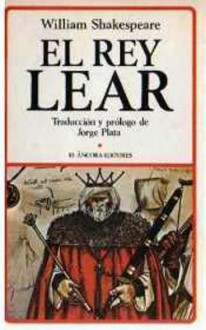One of Shakespeare's finest tragedies, the work displays a pessimism and nihilism that make it a 20th-century favorite. The aging King Lear decides to divide his kingdom among his three daughters, allotting each a portion in proportion to the eloquence of her declaration of love. The hypocritical...
show more
One of Shakespeare's finest tragedies, the work displays a pessimism and nihilism that make it a 20th-century favorite. The aging King Lear decides to divide his kingdom among his three daughters, allotting each a portion in proportion to the eloquence of her declaration of love. The hypocritical Goneril and Regan make grand pronouncements and are rewarded; Cordelia, the youngest daughter, who truly loves Lear, refuses to make an insincere speech to prove her love and is disinherited. The two older sisters mock Lear and renege on their promise to support him. Cast out, the king slips into madness and wanders about accompanied by his faithful Fool. He is aided by the Earl of Kent, who, though banished from the kingdom for having supported Cordelia, has remained in Britain disguised as a peasant. Kent brings Lear to Cordelia, who cares for him and helps him regain his reason. The Earl of Gloucester likewise spurns his honest son, Edgar, and believes his conniving illegitimate son, Edmund. Edmund allies himself with Regan and Goneril to defend Britain against the French army mobilized by Cordelia. He turns his father over to Cornwall--who gouges out Gloucester's eyes--then imprisons Cordelia and Lear, but he is defeated in battle by Edgar. Jealous of Edmund's romantic attentions to Regan, Goneril poisons her and commits suicide. Cordelia is hanged. Lear, broken, dies with her body in his arms.
show less

